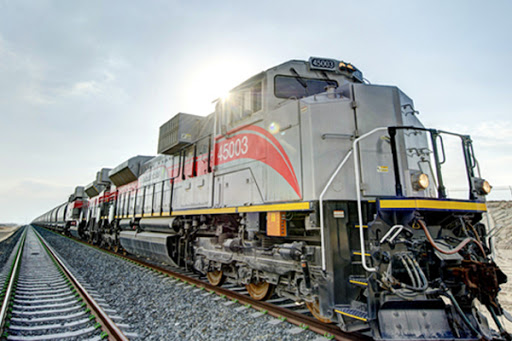Etihad Rail, the developer and operator of the UAE’s integrated railway network, has begun construction of the second phase of the rail network – linking Al Guwaifat on Saudi border to Fujairah and Khor Fakkan on the emirate’s eastern coast running 605 km long, said a top official.
Contracts worth Dh18 billion ($4.9 billion) have been awarded in this phase, said Mohammed Rashid Al Marzouqi, the Executive Director of Relations at Etihad Rail, in an exclusive interview to the Emirates news agency Wam.
Al Marzouqi said Etihad Rail was manufacturing a new fleet of locomotives, increasing its fleet size to 45, as well as establishing a major operations and maintenance center in Al Fayah, Abu Dhabi, confirming that the company is moving quickly to complete one of the largest and most important projects in the country.
He also pointed out that Etihad Rail’s key project will affect many sectors, including the economy, society, the environment and tourism
It will help establish a new transport sector in the UAE, and achieve a milestone in the shopping and logistical services sector, remarked Al Marzouqi.
In January, Etihad Rail began the second phase of the national railway network, which runs 605 km long with “Stage A” extending 139 km to link Ruwais with Al Ghuwaifat at the Saudi border, Stage B extending 216 km from Tarif to Seeh Shuaib, Stage C running 94 km from Jebel Ali to Sharjah and Stage D being 145 km from Sharjah to the ports of Fujairah and Khor Fakkan.
The project will see the construction of further stages to complete the network, he addded.
In response to the plans for the national rail network, Etihad Rail constructed its centre in Al Fayah, which is managed by a coalition led by the French company, Vinci Construction, as part of its future goal to create a railway network that supports the long-term growth of the nation’s economy.
The company is also building stations in Al Ruwais, ICAD, Khalifa Port, Dubai Industrial City, Jebel Ali Port, Al Ghail, Siji, and the ports of Fujairah and Khor Fakkan, to handle the loading and unloading of trains, as well as for container storage and maintenance.
Al Marzouqi said the stations will provide customers with numerous advantages, such as enabling them to board available trains.
These stations will become major hubs for distribution of local and regional logistics services, which include customs warehouses and the inspection of goods on site.
They will also serve many other sectors, most notably the construction material sector, and they will help transport over 30 million tonnes of rocks per year through the rail network.
As part of the company’s efforts to complete the project, which will assist the country’s development and reinforce its prominent global position, it has increased its fleet to 45 locomotives supplied by “Progress Rail: A Caterpillar Company.”
TradeArabia News Service
17/05/2020

























































